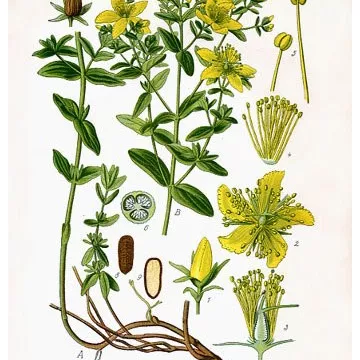Delicate, concentrated and rich in volatile or water-soluble active ingredients, the medicinal flowering tops available on Soin-et-Nature are a major phytotherapeutic resource for soothing the nervous system, supporting digestion, circulation and respiratory comfort. Gathered from rigorously selected sources, these flowers are carefully prepared and packaged to preserve all their therapeutic efficacy, in keeping with herbalist traditions.
More details












Flowers are among the most delicate and powerful parts of medicinal plants. As the reproductive organ and interface between the plant and its environment, they concentrate a wide variety of volatile or water-soluble active ingredients, often involved in defense, communication and attraction mechanisms. Their biochemical richness and subtlety of action make them a leading therapeutic tool in traditional medicine and modern herbalism.
Used since Antiquity in the form of herbal teas, infusions, glycerine macerates, oils or powders, medicinal flowers are renowned for their soothing, digestive, circulatory, sedative or anti-inflammatory effects. They also form the basis of certain galenic forms such as flower elixirs, floral waters and solar macerates, for both external and internal use.
Flowers contain a wide variety of secondary metabolites, sometimes in more concentrated quantities than in other parts of the plant. Their role in plant reproduction implies a particular wealth of attractive, protective and aromatic substances.
Among the main components present in medicinal flowers are :
Flowers often act in a subtle, profound way, with excellent bioavailability when prepared as infusions or tinctures.
Medicinal flowers lend themselves to a very wide range of indications. Some are calming, others digestive, circulatory or respiratory. Here's an overview of the main flowers available in herbal shops and their traditional virtues:
Calming and sedative flowers
Digestive and anti-spasmodic flowers
Respiratory and anti-inflammatory flowers
Circulatory and veno-active flowers
Medicinal flowers are often fragile. The way they are prepared must respect their delicacy, avoiding overheating or over-extraction.
Infusion (herbal tea)
This is the gentlest and most widely used method:
Cold macerate (aqueous macerate)
Indicated for mucilage-rich flowers (mallow, poppy):
Glycerine macerate
Used for flowers in gemmotherapy or flower essences, with a more targeted action on emotional or energetic areas.
External use
Some flowers can be used as mouthwashes, compresses, lotions, eye drops or sitz baths (calendula, cornflower, chamomile, arnica).
The quality of medicinal flowers depends on several essential criteria:
At Soin-et-Nature, we select only whole or fragmented flowers, never pulverized, guaranteeing their traceability, freshness and therapeutic efficacy.
Yes, medicinal flowers can be combined with other flowers or plant parts (leaves, roots, bark) to create synergistic blends, tailored to every need.
Examples of effective combinations:
It is recommended not to exceed three to four plants per formula to preserve their coherence and efficacy.
Soin-et-Nature offers a complete and rigorous selection of herbal products, drawn from the phytotherapeutic tradition and adapted to today's natural health needs. Bulk plants, ready-to-use herbal teas, concentrated preparations... each product is chosen for its efficacy, quality and suitability for a holistic approach to well-being.
Thanks to this diversity of formats and galenic formulations, herbal medicine takes its rightful place in a natural, preventive approach that respects your body. At Soin-et-Nature, you benefit from the richness of plants, combined with pharmaceutical expertise, to support you in your daily efforts to promote sustainable, global health.